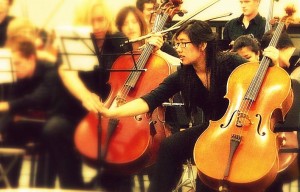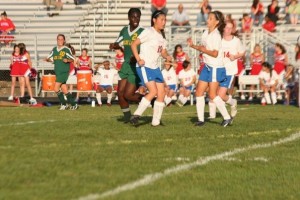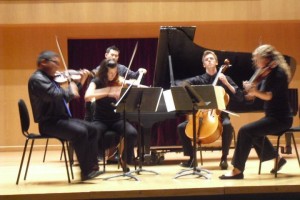Why Vanderbilt: A Musician’s Perspective, Part 1
Usually at the end of sophomore year, when we have to choose our majors, we hit a wall. We figuratively hit it really hard. We come to that point where we ask ourselves the academic existentialist question, “Why am I in school?” For me, specifically, it was the question, “What I am doing…. as a musician?”
That was- and still is- a very good question. There are so many orchestras who are going under right now, with much ambiguity of financial stability, of the general population’s interest in classical music, of whether orchestral jobs will even have openings.
This blog post, I suppose, will be on the more personal side, and will probably be tackled in multiple sections. Today I’ll start with the: “How and why did you get into music” question.

It always helps me to remember the roots of where a love begins. Emotions ebb, so it’s reasonable to rationalize on an intellectual level every once in a while the motivations for continuing to pour my life into, well to put it bluntly, the entertainment industry.
I began playing the cello at the age of eight, which isn’t that tender of an age when you think about those prodigies who start at three. Third grade was the time when everyone chose a stringed instrument to play. My oldest sister played the violin, the next sister played the viola, and so obviously, I would choose the next instrument in the string family: the cello. Side note: when it came time for my brother to pick an instrument, he didn’t choose the bass, the last instrument which would round out the string family, or even the violin, which would have allowed us to play string quartets. Of course, he had to decide on the viola.
When I was younger, I played both the piano and the cello, but by high school, there were so many other interests I wanted to pursue, like the environmental and tutoring clubs or the soccer team or the National Honor Society, that I really only had time to focus on one instrument.

Cello seemed the obvious choice. It was portable. It had the capacity to capture so many sound worlds: from the low, mellow qualities to its virtuosic, upper voices. In fact, the cello is pretty much the range of the human voice, which is an admirable trait because I can’t sing at all. It was a much more social instrument because I could literally play with other people in orchestra or in chamber groups.
And for some strange reason, my teachers, one who taught me for five years and passed me off to another who taught me for four, believed in me. They thought I had potential. Me… talented? What an absurd idea.
The story has it that I began to do well as a cellist, and it landed me at this summer festival called the Kent/Blossom Music Festival. That was shocking because most of the other participants were older college students and graduate students and post-graduate students. I had the chance to play chamber music with them, and that was an extraordinary experience. Music wasn’t just fun anymore, but it became meaningful. Real, I suppose.

Oftentimes, I just don’t get it. Music is always real, but why did it suddenly become irresistible? It wasn’t just a musical high that I get when playing pieces like the Elgar Cello Concerto or Beethoven’s Symphony No. 5, but there was some sort of intense joy that became apparent. Baffling, this passion is.
Let’s make our way towards Vandy. I had been applying to schools, most of which would balance my academic interests with the musical ones, but some of which were purely musical, and these schools are also known as conservatories. In the end, I came to a stand-still where I didn’t know where to go: a top-notch conservatory or a top-notch liberal arts college (Vanderbilt).
Well, you obviously know where I chose. Why?
I’m sorry to leave you at a cliffhanger, but this post is getting much too long. I promise to answer it in my next post. Until next time!